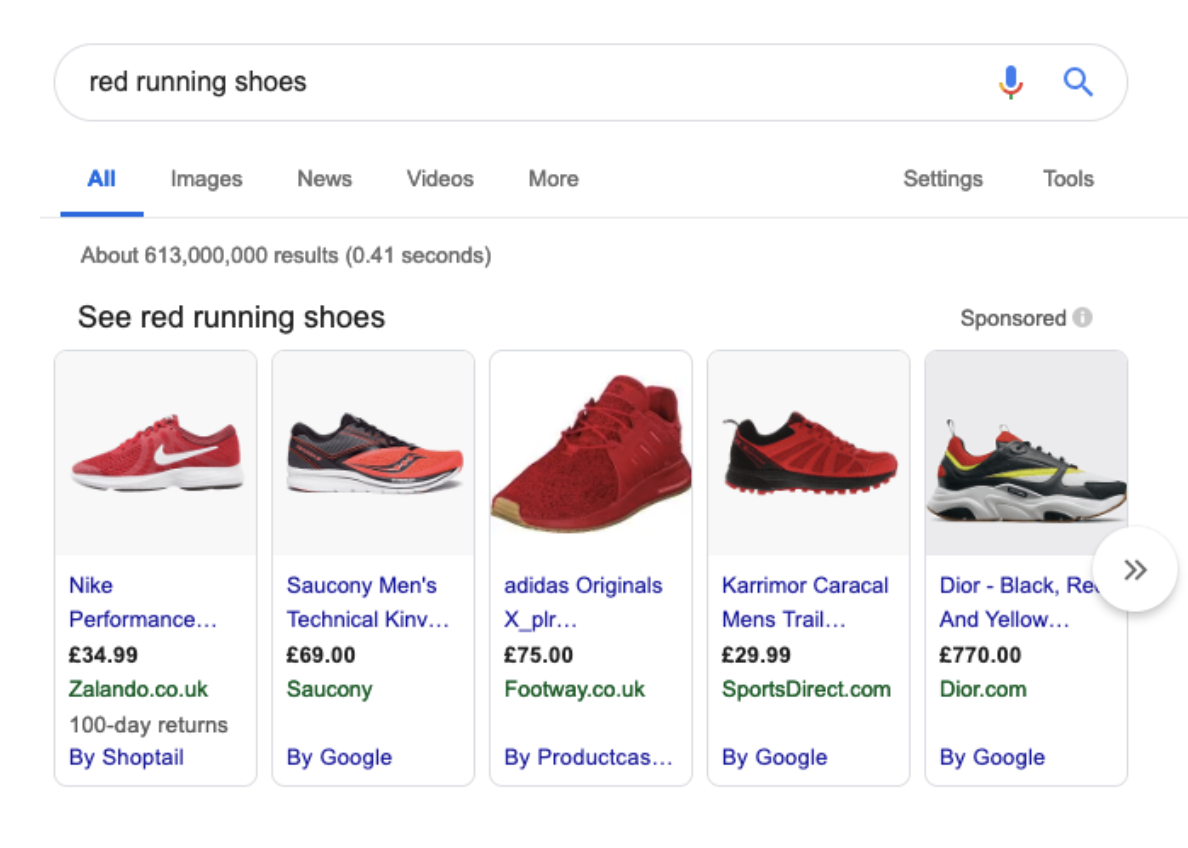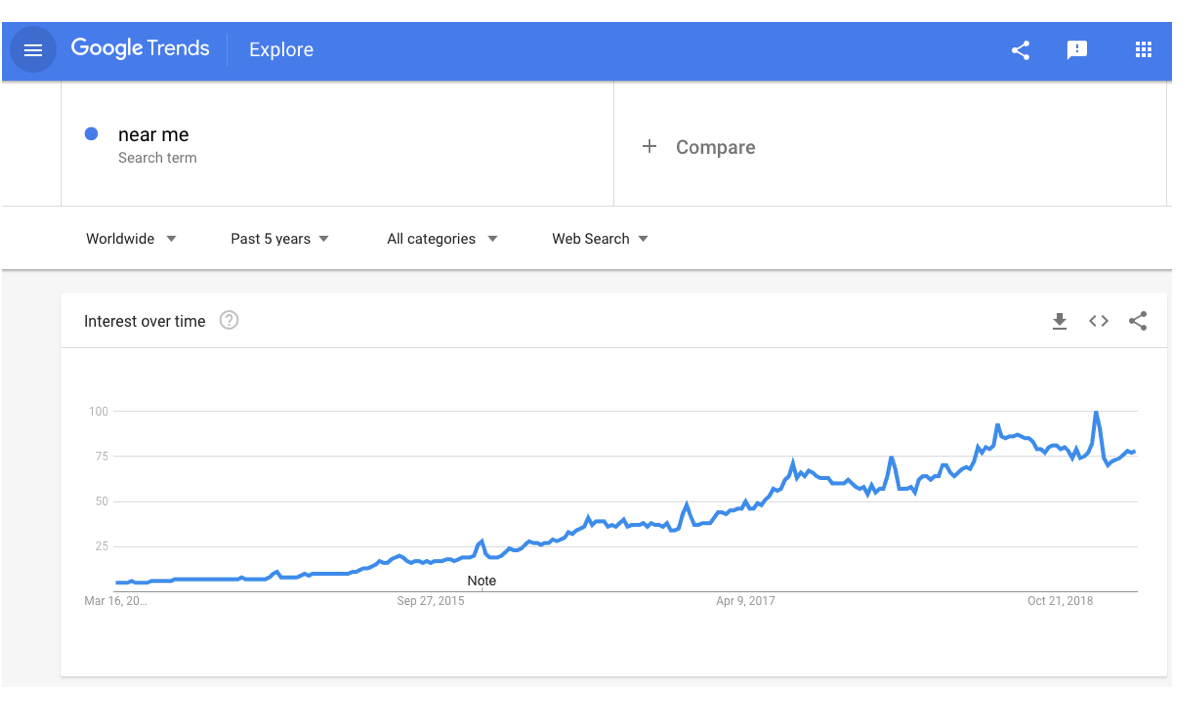How to Spend Your First $100 on Google Ads

How to Spend Your First $100 on Google Ads
Contributed ContentWith a variety of platform options and low barrier to entry, PPC marketing offers an actionable and swift option to jumpstart your digital marketing strategy. Using these best practice techniques offers you a promising chance to start seeing some results early on.
Why is Google Ads one of the best platforms available to reach potential buyers? As the most commonly used search engine, Google is an intuitive place to start your first paid search marketing efforts.
With approximately 3.5 billion searches conducted per day, people are constantly looking for answers on Google.
Unlike on social channels like Facebook and LinkedIn, Google users tend to have high commercial intent. Search engine users are likely seeking a solution to their problems.
Searchers fall into 3 categories:
- Informational Searches: Seeking information related to a specific topic
- Navigational Searches: Looking for a specific website
- Transactional Searches: Trying to find a product or service
The last category, transactional searches, should be the primary concern for marketers who use PPC campaigns.
Fortunately, Google Ads lets you cherry-pick search terms to advertise your business exclusively when it’s relevant to what a user is searching for.
If you can attract clicks from specific search queries and pair them with a persuasive offer, you’ll be ahead of the game in turning a user into your next customer.
As a PPC management agency, we’ve had the opportunity to see what works for our clients (and what doesn’t) firsthand. More often than not, Google Ads is the number one channel we select for clients who aren’t currently marketing online.
Even within hyper-competitive industries, there are always sales to be had. Stiff competition just means we have to try a little bit harder when putting a strategy together.
This guide will walk you through the best places to start when launching a new Google Ads campaign. Applying these tactics poses a promising method to yield a high ROI early on.
1. Branded Searches for Qualified Leads and Conversions
How do your customers currently find your brand online?
Getting your brand to the top of the list of Google results when someone searches for your company should be the first place you start.
While broad, unbranded search terms can attract a wide audience with relevant interests, the most qualified leads often come from branded keywords. Furthermore, leads from branded search terms are very likely to turn into conversions.
Even though users are unlikely to place a purchase the first time they visit your site, it’s still important to ensure they can find you when they decide they want to buy your products or services.
This type of campaign will display ads for search terms related to your brand name.
Let’s say your business is called Bob’s Bikes and it’s located in London. As you plan your PPC campaign, make sure you’re showing up for search terms like the following:
- Bob’s Bikes
- Bob’s Bikes London
- Bob’s Bikes Deliveries
- Bob’s Bikes Store Hours and Location
Targeting these search terms will ensure users can easily find relevant information about your business. Simplifying and streamlining their user experience as they investigate your brand will make people more likely to purchase from you and engage with your brand.
Beating Pesky Competitors With Branded Campaigns
Combatting competitors in your industry is yet another compelling reason to run a branded PPC campaign.
I recently sat down with a new client. The first thing I did was to type their company name into Google.
The results for their branded search terms showed advertisements from all three of their main competitors.
I explained what this meant in practice. People who had been looking for my client’s business had potentially been clicking on ads for their competitors instead. As a result, these searchers were likely becoming new customers of their competitors, rather than new business for my client’s company.
Needless to say, my client had a brand campaign up and running within the hour.
The first step I suggest taking is to search for your company’s name on Google. You might be surprised to see what results come up.
Many arguments exist both for and against brand campaigns. Ultimately, this decision boils down to whether or not you’re prepared to take the risk of relying on searchers to scroll past the paid results to find your website in the organic section.
Still not convinced this is a good idea? The top three paid ad placements account for 46% of clicks on a results page, according to SEO Tribunal.
2. PPC Campaigns as a Remarketing Strategy
Remarketing is showing display ads to users who have already visited your website but haven’t become a customer yet.
First, set up specific audiences based on groups of users who have performed a specific action such as visiting your shopping cart or pricing page within a specified time period.
Once you’ve defined these categories, show specific audiences display ads to persuade them to come back and complete the conversion goal you have in mind.
Once you decide to set up a remarketing campaign, follow these steps:
- Create an audience in Google Analytics
- Create your remarketing campaign in Google Ads
- Apply the audiences you’ve defined
- Upload the images you plan to use in your ads.
Expert Tip: If you have a limited budget, try using a responsive display ad.
Users who have performed the given action most recently will usually be the easiest ones to convert. It’s always worthwhile to test different time periods to see which strategies work best to activate different audiences.
3. Shopping Campaigns: Functional PPC Product Advertising
If you haven’t already heard, shopping campaigns are taking the SEM world by storm. This subset of PPC campaign generated 75% clicks for e-commerce retailers in 2017 — and they aren’t showing any signs of slowing down.
How Do Google Shopping Campaigns Work?
When users search for a product that is listed in an advertiser’s product feed, Google Shopping will display an advertisement for the product that includes an image, price, and title as shown in the image below.

As you can see in this example, a search for “red running shoes” immediately displays products that fit these criteria from top sports apparel brands like Nike and Saucony. E-commerce retailers like Footway.co.uk and SportsDirect.com also have paid ads in this section, even if they’re less-known than major brands people commonly associate with sneakers.
This video from Google does a great job explaining how to get set up on this advertising platform.
Expert Tip: If you’re selling branded products in an industry where companies compete based on price, this is an especially useful type of campaign that’s worth exploring.
Create a shopping campaign using the following process:
- Create a product feed containing all of your inventory
- Publish the feed to Google Merchant Center
- Link your Google Ads account with Google Merchant Center
- Create your own Google Shopping campaign
Shopping campaigns on Google work well because users are already showing a high level of commercial intent by searching for a product type in their query.
If you’re just starting out in e-commerce, Google Shopping campaigns are a wise choice to generate the most attention possible for your brand.
4. Specific Keywords for Product Searches
Do users typically search online for the specific products that you sell?
If the answer is yes, then PPC advertising based on target keywords is very likely to get your product in front of the right potential buyers.
Users go through various buying stages in the buying cycle when completing a purchase.

These stages include pre-awareness, awareness, and consideration in the upper conversion funnel and preference, action, and loyalty in the lower funnel.
By the time a user starts searching for specific products, they are already in consideration the stage. Most likely, they’re ready to commit to a purchase. During this phase, they are deciding which company to buy a product from.
Users typically evaluate retailers based on the criteria like these:
- Length of Time for Delivery
- Delivery Charges
- Product Pricing
Advertising for specific keywords is a reliable way to pick up some “easier” sales, as long as you can compete with companies selling a similar item.
Google Ads: Not Just for E-Commerce
Along with e-commerce and online product sales, PPC campaigns are also applicable to service-based businesses
Even medical practitioners like dentists, for example, serve to benefit from running a Google Ads campaign.
Rather than limiting advertising efforts to generic keywords like “Dentist in New York City”, look for nuanced keywords that relate to the specific services you offer. In this instance, a dentist could advertise for terms like “teeth whitening in New York City” or “ Affordable tooth extraction in Washington, DC”.
Specific keywords apply later in the buying cycle when a target customer knows exactly what type of service they want.
5. Capturing Nuanced Interest With Long Tail Keywords
Long tail keywords are searches which have three or more words in them and are much more specific.
Generic keywords are short keywords that usually get lots of search traffic.
- Example: “houses for sale”
Long tail keywords that resemble a phrase or short sentence usually get much less traffic but are not nearly as competitive.
- Example: “houses for sale with swimming pool”
Try not to choose overly-long phrases. If there’s no search volume your ads, they simply won’t show up.
To find the right keywords, spend some time in the keyword planner and see if you can find any long tail keywords that are related to your products or services.
These types of keywords are a great candidate for an initial campaign. Marketers can get a much higher ROI when they advertise using long tail keywords.
6. Local Searches
If your company is a brick-and-mortar retailer or local service business, PPC campaigns that target local search results are the right choice for you.
As the internet evolves, local search is becoming an increasingly important focus.
Did you know the following statistics?
- On average, 50% of consumers who conduct a local search visit the store within one day
- Within just 24 hours, 18% of local mobile searches lead to a sale
This diagram of Google trends for local search can tell businesses how their target audience's interests have changed over time. 
As shown in this graph, the search term “near me” has become ever more commonly used by mobile visitors over the past 5 years. This trend is more than likely to continue the same upward trajectory.
Use this insight to your advantage as you allocate your Google Ads budget.
What Is a Local Search?
A local search includes both the desired product or service and also the geographic location where a buyer wants to purchase it.
Here are some examples:
- “Italian Restaurants in Baltimore, MD”
- “Homes for sale in Dallas, TX”
- “Best Web Developers in New York City”
- “Affordable Dry Cleaning in Washington, DC”
Local search offers yet another opportunity to acquire customers who are making more intentional searches. Since these queries include your location, ranking should be slightly less competitive.
If your business is local to where customers are searching, you’ll have a better chance of converting users due to relevance and proximity.
We recommend trying the main keywords people are most likely use to find your products or service along with the name of your town or city and state.
Final Tips for Launching Your First Google Ads Campaign: Stay Flexible and Use Trial and Error
The beauty of digital marketing is the ability it offers you to test what works best and discard efforts that prove ineffective. As you drop any campaigns that don’t work well, you’ll hone in on the most impactful strategies.
Consider the options we’ve laid out as you decide where to focus your attention when launching a Google Ads campaign of your own.
